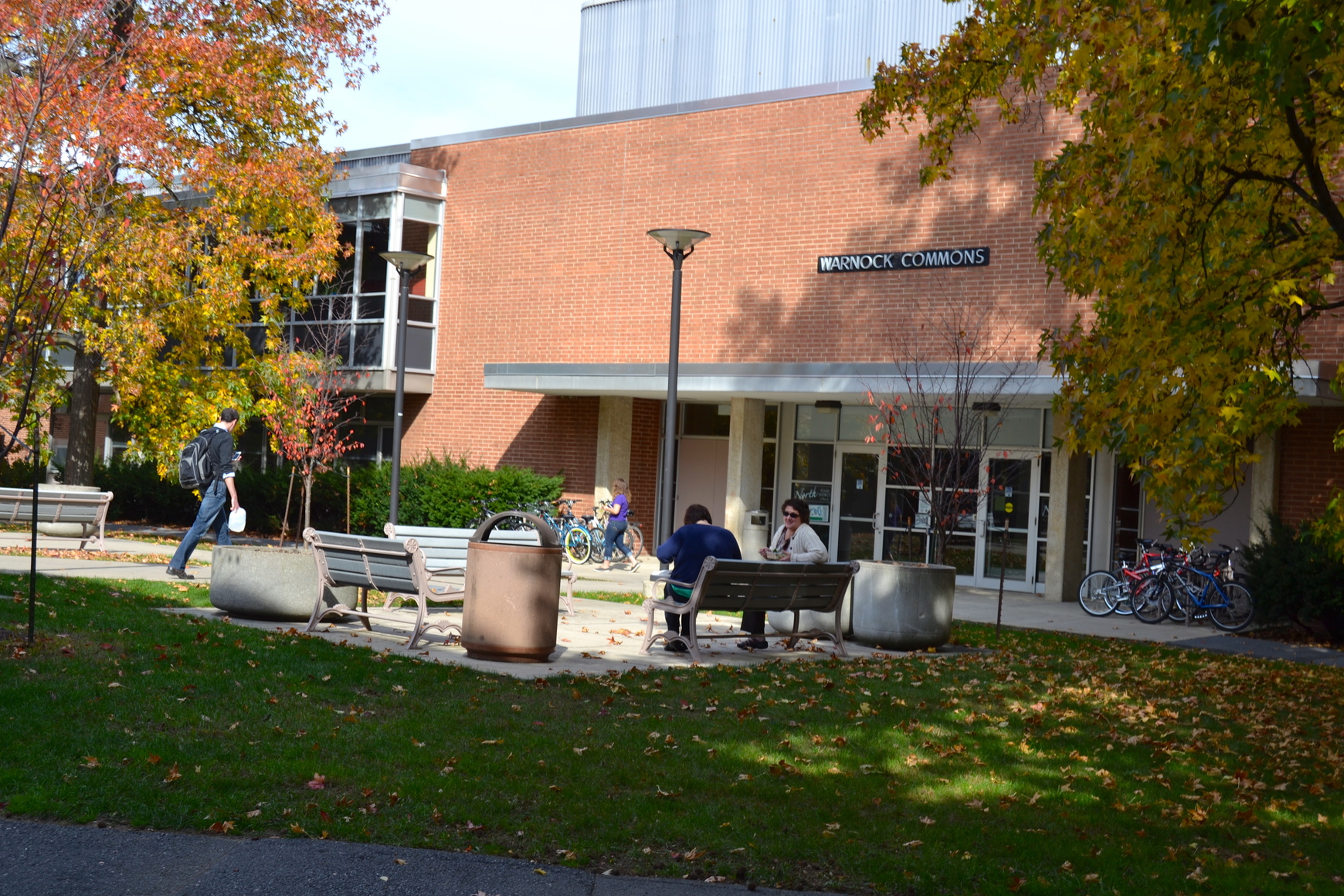The Revolving Door: Why Our Dorm Security Isn’t Enough To Keep Students Safe

Some stories stick with you more than most. And for me, the story of Zhongyuan Shao comes to mind every time I lock my door before I go to sleep.
Last October, Shao was able to enter a building he did not have access to and then proceed to spend nearly two hours on multiple floors, going in and out of rooms, without being caught. The dorm rooms Shao successfully entered were all unlocked, according to court documents, but that doesn’t change the fact Shao should not have been in the building in the first place.
The incident was an outright failure of the security measures meant to keep students safe in their residence halls, and it happened just a few buildings away.
So why should we care about this now?
It’s been exactly 13 months since Shao was taken into police custody and there is still nothing to stop someone else from doing exactly what he did.
The Security Shortcomings
I felt safe in my dorm until I read the criminal complaint against Shao, and I haven’t since. Even if I’m behind my door, which is always locked, I’m hyperaware that it’s just too easy to get in to the dorms.
One read-through of the current security policies and you’ll understand why. Here’s a rundown:
All residence halls have an electronic card access system at every entrance. Students can only swipe into the building they live in, and an alarm will sound if the door is held or propped open.
University Police regularly patrol campus and there are hundreds of security cameras across campus and at the entrances to residence halls and other buildings, which help to deter crime (thank you CRIM 012).
But that’s it. A swipe system and surveillance cameras are the only things in place to keep 13,700 students safe.
Piggybacking
According to the housing contracts, residents are not permitted to allow building access to anyone other than themselves and their invited guests — otherwise known as piggybacking.
This isn’t even a good idea in theory, because it’s impossible to keep people out of buildings they don’t belong in given the current system to keep them out.
The policy ignores the fact that people are constantly coming and going. As a result, getting into a building you can’t swipe into is not difficult; you can just slip right in behind someone. If a student swiped into their building and someone walked in behind them, it shouldn’t be a fellow student’s job to question if they live in the building or not. Even if they did ask them if they lived there, they’d have no way to prove if they were telling the truth.
Piggybacking allows unknown, potentially harmful people into residence halls. That’s a huge deal, and it shouldn’t be left for students to enforce.
The housing contract also states that all guests must be escorted by a resident of the building at all times. The resident host is supposed to escort the visiting student to the room and later out of the building. The contract goes on to state that staff members may confront individuals if they are not recognized as a resident of that building and/or resident of the building is not escorting them.
Herein lies the root of the problem. This policy only exists on paper and is blatantly not enforced.
If someone has malicious intent and enters a building they’re not supposed to be in, and they are not overtly acting suspicious, there’s little to stop them.
There’s no way for someone to know if a guest is not being escorted by a resident because there’s no way to determine if they are a guest or not. I can’t recognize all of the people on my floor, let alone in my building.
There are on-call RAs for residence halls from 8 p.m. to 7 a.m. There are more than 300 people in the residence hall I live in. The on-call RA for my building has to monitor the building I live in and the building next door. That’s a total of eight floors and hundreds of students. If the RAs focus on monitoring who is coming in and out of the building, they can’t ensure students are safe on each floor.
We have roundtables, discussions, and task forces for a number of pertinent issues on campus right now. If the housing safety procedures are continuously monitored, it’s time to improve.
A Person To Solve The Problem
Michigan State University, like Penn State, requires all guests be escorted by a resident for the duration of their stay. However, at Michigan State, after midnight all guests must also be registered with a night receptionist and entry is restricted to front doors only.
At Pitt, all residence halls have a security desk that is staffed 24/7. When entering a residence hall, the desk attendant swipes a student’s ID card to verify they live in that building. In addition, all visitors must present a photo ID and sign in and out.
The University of Massachusetts hires student Security Monitors to register guests, check residents’ identification, and screen visitors at the entrances of residence halls. This policy would be easy to replicate at Penn State, since the Security Monitors are similar to our Auxiliary Officers.
We can learn from these schools. They all have an employee to ensure that people in the building are supposed to be in the building. Adapting a similar method of building security would not eliminate crime in the dorms, but it would eliminate the shortcomings of our current security policies.
When you look at other Big Ten schools, Penn State’s dorm security pales in comparison. Unless we’re proactive, it’s going to take something awful to ignite a need for change. And we can’t allow that to happen.
Your ad blocker is on.
Please choose an option below.
Purchase a Subscription!




